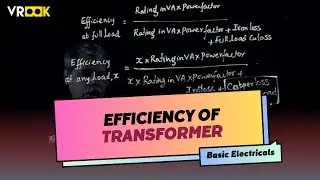What is business model? Decoding The Startup Lingo Ep 3
Discover the secrets of effective business models in this informative video. Learn how companies create value, generate revenue, and achieve sustainability through well-defined strategies.
E-commerce: Selling products or services online directly to consumers (B2C) or other businesses (B2B).
Subscription: Charging customers on a recurring basis for access to products or services (e.g., Netflix, Spotify).
Freemium: Offering a basic version of a product or service for free and charging for premium features or upgrades (e.g., Dropbox).
Marketplace: Connecting buyers and sellers on a platform and taking a commission or fee for facilitating transactions (e.g., eBay, Airbnb).
Advertising: Providing content or services for free while generating revenue through advertising (e.g., Google, Facebook).
Franchise: Allowing individuals or entities to operate under your brand and business model in exchange for fees and royalties (e.g., McDonald's).
SaaS (Software as a Service): Offering software applications on a subscription basis, often hosted in the cloud (e.g., Microsoft 365).
On-Demand: Providing access to goods or services immediately when customers request them (e.g., Uber, DoorDash).
Brick-and-Mortar: Traditional physical retail businesses that sell products or services in physical locations (e.g., supermarkets, clothing stores).
Crowdsourcing: Leveraging a crowd of people, often online, to obtain ideas, content, or services (e.g., Wikipedia).
Direct Sales: Selling products directly to consumers through personal interactions (e.g., Avon, Amway).
Affiliate Marketing: Earning a commission by promoting other companies' products or services through affiliate links.
Razor and Blade: Selling a primary product at a low cost and making profits from complementary or consumable products (e.g., printers and ink cartridges).
Pay-As-You-Go: Charging customers based on their actual usage of a product or service (e.g., utility companies, pay-per-click advertising).
Crowdfunding: Raising capital by soliciting small contributions from a large number of people, often through online platforms (e.g., Kickstarter).
Licensing: Granting others the right to use your intellectual property (e.g., patents, trademarks) in exchange for royalties.
Consulting and Services: Offering expertise and services to clients for a fee (e.g., law firms, management consulting).
Manufacturing: Producing and selling physical products, often at scale (e.g., automobile manufacturers).
Nonprofit: Operating with a mission to serve a cause rather than generate profits, often relying on donations and grants.
Cooperative: Owned and operated by its members, who share in the decision-making and profits (e.g., credit unions, agricultural cooperatives).
A business model refers to the framework and strategy a company uses to create and deliver value to its customers while generating revenue and sustaining its operations. It encompasses various elements, including the company's target customer segment, the value proposition it offers, the distribution channels it uses, and the revenue model it employs.
Business model
Revenue generation strategies
Value creation
Sustainability in business
YouTube tutorial
Business strategy insights
Entrepreneurship tips
Customer segmentation tactics
Distribution channels explained
Monetization methods



















